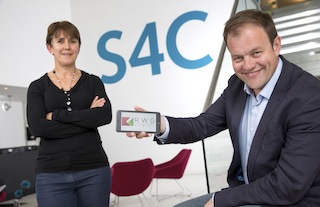The power of education as a door opener to adjacent markets has been emphatically underscored by the success of Daisy Distribution's Partner Academy launched in April.
The scheme has already seen scores of mobile-centric partners extend their portfolios and market reach in areas once alien to them.
Dave McGinn, Daisy Distribution MD, said: "Airtime was our bread and butter, it's our heritage and many of our partners' too. So to expect them to just grasp connectivity, Wi-Fi and cloud etc overnight would be foolish of us. That is how the Partner Academy came about."
Six sessions have been completed by 64 partner delegates with a further 94 booked into the scheme.
The distributor has already seen 45 of those traditional mobile partners place orders for lines and calls, broadband, Ethernet, hosted voice, mobile and Wi-Fi.
"It's fantastic to see in such a short space of time how these sessions have helped our historically mobile-centric partners open up their businesses to new opportunities," added McGinn.
"It's about us connecting with our partners in a way that allows them to connect with their customers and play an important part in their digital journeys."
Subjects covered by the Partner Academy so far include Daisy's hosted voice solution HV.Select, Break-fix Maintenance, Daisy Wi-Fi and Intelligent Mobile.
Two more themes will be added later in the year -Connectivity for Productivity and the Digital Workplace.

 A deal between Welsh mobile network RWG Mobile and broadcaster S4C will catalyse the development of a digital platform to provide RWG's customers with S4C content including coverage of live sporting events on their mobile phones.
A deal between Welsh mobile network RWG Mobile and broadcaster S4C will catalyse the development of a digital platform to provide RWG's customers with S4C content including coverage of live sporting events on their mobile phones. Four directors from South West Communications Group have scaled the UK's highest three peaks to raise money for the Prince's Trust.
Four directors from South West Communications Group have scaled the UK's highest three peaks to raise money for the Prince's Trust.